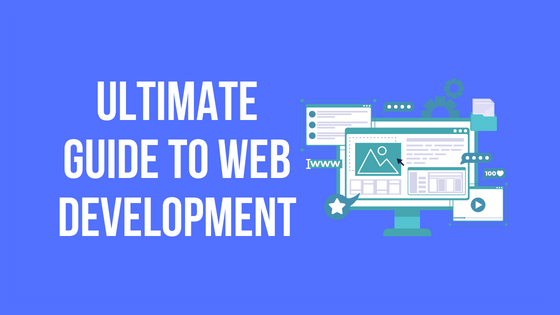Technology has come a long way since the early days of the internet. We now have the ability to create complex web applications that are used by millions of people all over the world. But how did we get here? And what exactly is web development? In this guide, we will explore the history of web development and how it has evolved into the industry it is today. We will also discuss the different types of web development and what skills you need to be a successful developer. By the end of this guide, you will have a solid understanding of what web development is and how you can get started in the field.
What is web development?
Web development is the process of creating a website or web application. It includes everything from planning and designing to coding and testing.
Web development is a complex process that involves many different skills and disciplines. The most important part of web development is creating a user-friendly and efficient website or web application that meets the needs of your users.
Creating a successful website or web application requires careful planning, design, and coding. You also need to test your site or app to make sure it works properly and is easy to use.
The different types of web development
Web development is a broad term that can refer to many different types of activities and roles within the industry. In its most basic form, web development simply refers to the process of creating and maintaining websites. However, there are many different types of web development, each with its own set of skills and technologies.
The most common type of web development is front-end web development. This is the process of creating the graphical interface and user experience for websites and web applications. Front-end developers use HTML, CSS, and JavaScript to create the visual interface for users. They also collaborate with back-end developers to ensure that the user experience is seamless.
Back-end web development refers to the server-side of website development. Back-end developers use programming languages like PHP, Ruby on Rails, or Python to power the behind-the-scenes functionality of websites and applications. They are responsible for database management, security, performance optimization, and other critical tasks.
Full stack web development encompasses both front-end and back-end development. Full stack developers have a comprehensive understanding of all aspects of website development, from design to deployment. They are often able to work independently on small projects, or collaborate with teams on larger ones.
Mobile web development is a specialization within web development that focuses on creating websites and applications specifically for mobile devices such as smartphones and tablets. Mobile developers use responsive design techniques to ensure that their products look good on any size screen. They also utilize
The pros and cons of web development
When it comes to web development, there are a lot of pros and cons to consider. On the one hand, web development can be a great way to create a custom website that is tailored to your specific needs and goals. On the other hand, web development can be very time-consuming and expensive.
Let’s start with the pros of web development. First, as we mentioned, you can create a completely custom website when you work with a web developer. This means that you can have a site that looks exactly how you want it to, and that includes all of the features and functionality that you need. Second, working with a professional web developer can save you a lot of time and hassle in the long run. They will handle all of the technical aspects of your site for you, so you can focus on other things.
Now let’s talk about some of the cons of web development. First, as we mentioned above, it can be quite time-consuming and expensive. If you want to have a really high-quality website, it’s going to take some time and money to get it done right. Second, if you don’t keep up with your site regularly, it can start to look dated quickly. That’s why it’s important to find a balance between investing in your site and keeping it up-to-date; too much or too little investment in either area can hurt your overall results.
What skills do you need for web development?
Web development is a broad term that can encompass everything from building a simple website to developing complex web-based applications. To be a successful web developer, you need to have a strong foundation in both coding and design.
In terms of coding, you will need to be proficient in HTML, CSS, and JavaScript. These are the three core technologies that are used to build websites and web applications. You may also need to know other languages like PHP, Ruby on Rails, and SQL depending on the type of development work you want to do.
Design is also important for web developers. Even if you’re not doing any of the actual design work yourself, you still need to have an understanding of design principles in order to create websites or applications that are visually appealing and user-friendly.
Finally, it’s also helpful to have some project management skills. As a web developer, you’ll often be working on multiple projects at once and will need to be able to juggle different deadlines and tasks.
Web development tools
There are a variety of tools available to web developers today. Choosing the right tool for the job can be a daunting task, but this guide will help you make the best decision for your project.
The most popular web development tools include:
-HTML editors: these allow you to create and edit HTML code. Examples include Adobe Dreamweaver, Microsoft Expression Web, and SeaMonkey.
-Text editors: these are simpler than HTML editors and are used primarily for editing code. They don’t usually have as many features as an HTML editor, but they can be a good choice if you’re just starting out or working on a small project. Some popular text editors include Notepad++, Sublime Text, and Atom.
-Code libraries: these are collections of code that you can use to save time when developing your website. jQuery is one of the most popular code libraries available today.
-Web frameworks: these provide a structure for your website’s development and can make common tasks easier to accomplish. Ruby on Rails is a popular web framework that is used by many high-profile websites such as Twitter and Hulu.
-Content management systems: these allow you to easily create and manage content on your website without having to write code yourself. WordPress is the most popular content management system in use today.
Alternatives to web development
There are a number of alternatives to web development that can be considered when looking to create a website or web-based application. These include:
1. Using a content management system (CMS): A CMS is a pre-built platform that enables users to create, edit and publish content without the need for any coding knowledge. There are many popular CMSs available, such as WordPress, Joomla! and Drupal.
2. Employing a web developer: If you have the budget, you can hire a professional web developer to create a custom website or application for you. This option gives you the greatest flexibility in terms of design and functionality, but it will also be the most expensive.
3. Using an online website builder: Online website builders provide users with an easy-to-use platform for creating simple websites or applications. Many of these platforms require no prior coding knowledge and offer templates and drag-and-drop tools to make the process of building a website easy and straightforward.
4. Creating your own code: If you’re feeling ambitious and have some basic coding skills, you could always try your hand at creating your own code for a website or application from scratch. This option will give you the most control over your project, but it will also be the most time-consuming (and potentially frustrating!)
Conclusion
We hope you enjoyed this comprehensive guide to web development! Whether you’re just getting started or you’re a seasoned pro, we hope you found something new and helpful in this guide. From front-end to back-end and everything in between, there’s a lot to learn in the world of web development. But don’t worry — with hard work and determination, anyone can become a great developer. Thanks for reading!



